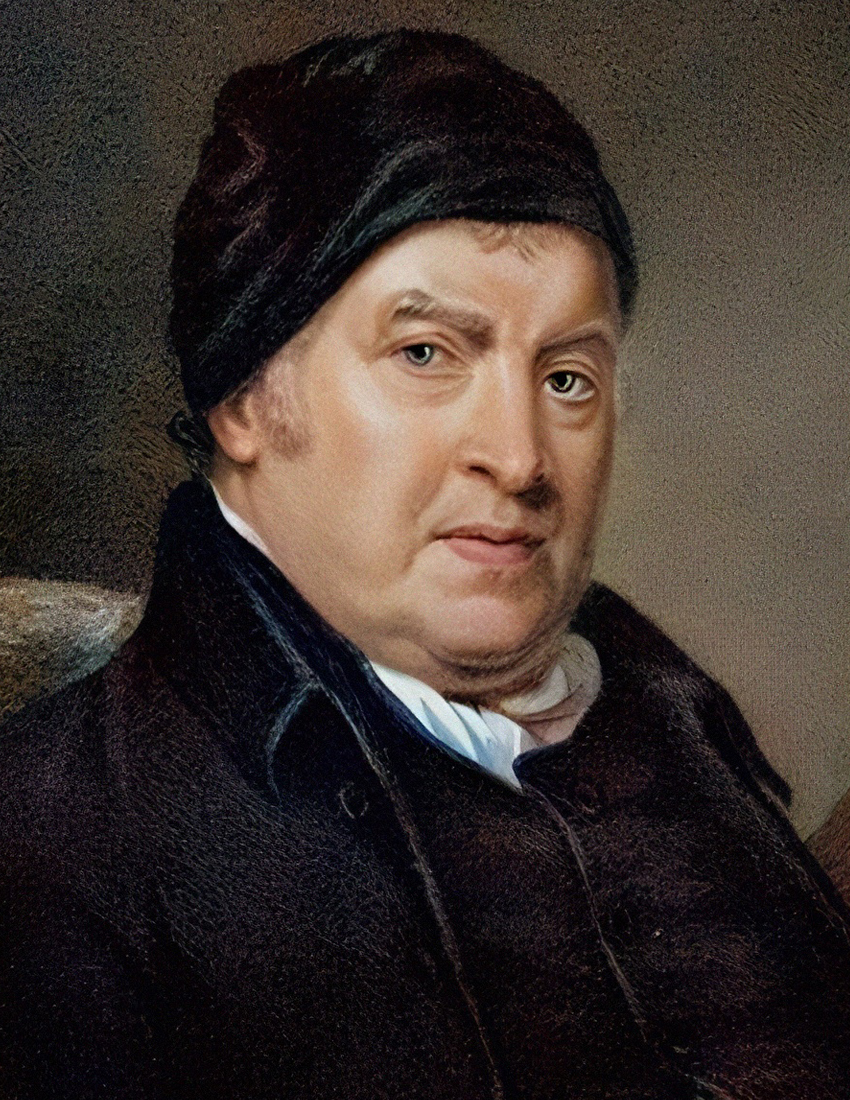Born: January 6, 1740, Lidget Green, Yorkshire, England.
Died: July 25, 1817, Hebden Bridge, Yorkshire, England.
Buried: Baptist Church, Wainsgate, Hebden Bridge, Yorkshire, England
John Fawcett

Hymns by John Fawcett
The creaking of wagon wheels and the soft sobs of a congregation filled the air on that fateful day in 1772. John Fawcett was poised to leave the humble Wainsgate Baptist Church for a prestigious position in London. But as he gazed upon the tear-stained faces of his flock, something stirred within his heart. Little did he know, this moment would not only change the course of his life but also give birth to one of Christianity’s most beloved hymns.
John Fawcett: A Hymn Writer’s Journey of Faith and Devotion
On a crisp January day in 1739, in the humble village of Lidget Green near Bradford, Yorkshire, a child was born who would grow to touch countless hearts through his devotion and song. John Fawcett entered this world as one of many children, unaware of the profound impact he would have on Christian hymnody and the lives of those around him.
Life’s trials began early for young John. At the tender age of twelve, he suffered the loss of his beloved father, leaving him to face an uncertain future with his widowed mother and siblings. The Lord, however, had plans for this boy that would unfold in unexpected ways.
The following year, John was apprenticed in Bradford, embarking on a six-year journey that would shape not only his work ethic but also his spiritual path. Raised in the Established Church, John’s heart remained untouched by the deeper truths of faith until a pivotal moment at the age of sixteen.
It was then that John heard the renowned George Whitefield preach a sermon that would alter the course of his life. Whitefield’s words, based on John 3:14, “And as Moses lifted up the serpent in the wilderness, even so must the Son of man be lifted up,” pierced young Fawcett’s heart. Years later, he would reflect, “As long as life remains, I shall remember both the text and the sermon.” In that moment, the seeds of a profound spiritual awakening were planted.
Initially drawn to Whitefield’s followers, then known as Methodists, John’s spiritual journey took another turn three years later. In 1758, at the age of 19, he joined the newly-formed Baptist Church in Bradford, finding a home for his burgeoning faith.
A Shepherd Finds His Flock
Three years after joining the Methodists, Fawcett felt a calling in a new direction. He united with the Baptist Church, and in 1765, at the age of 26, he was ordained as the Baptist minister at Wainsgate near Hebden Bridge, Yorkshire. It was here, among the rolling hills and simple folk, that Fawcett would find his true purpose.
Life as a small-town minister was far from easy. Fawcett’s annual salary of £25 was barely enough to support a family. Yet, he persevered, his faith growing stronger with each passing year. His dedication to his congregation and his eloquent sermons began to attract attention beyond the confines of Wainsgate.
A Test of Faith and Love
In 1772, Fawcett received an invitation that would test his commitment to his humble flock. The prestigious Carter’s Lane Baptist Church in London, previously led by the celebrated Dr. J. Gill, extended an offer for Fawcett to become their new pastor. The opportunity seemed too good to refuse – a chance to preach in the heart of London, to a larger congregation, with a more comfortable salary.
Fawcett accepted the offer, preached his farewell sermon, and loaded his belongings onto a wagon. But as he prepared to depart, the love and tears of his devoted congregation overwhelmed him. In a moment that would define his ministry and inspire countless others, Fawcett chose to stay in Wainsgate.
This selfless act of love gave birth to his most famous hymn, “Blest Be the Tie that Binds.” The words, penned in 1782, beautifully captured the deep bond between a pastor and his flock:
Blest be the tie that binds
Our hearts in Christian love;
The fellowship of kindred minds
Is like to that above.
A Life of Service and Scholarship
Fawcett’s ministry continued to flourish. In 1777, a new chapel was built for him at Hebden Bridge, and he opened a school at Brearley Hall, his place of residence. His reputation as a scholar and a man of God grew, leading to an invitation in 1793 to become President of the Baptist Academy in Bristol. True to his character, Fawcett declined, choosing to remain with the people who had captured his heart.
In 1811, Fawcett’s contributions to theology and hymnody were recognized with an honorary Doctor of Divinity degree from America. This accolade was a testament to the impact of his numerous prose works on Practical Religion, many of which gained wide circulation.
A Legacy in Verse
Throughout his life, Fawcett’s pen never ceased its work. His poetic publications ranged from “Poetic Essays” in 1767 to “The Reign of Death” in 1780. But it was his collection “Hymns Adapted to the Circumstances of Public Worship and Private Devotion,” published in 1782, that secured his place in the annals of Christian hymnody.
While Fawcett’s hymns may not have reached the poetic heights of some of his contemporaries, they possessed a spiritual depth and practicality that resonated with congregations. His words found their way into Baptist and Congregational hymnbooks, touching the hearts of worshippers for generations to come.
A Faithful Servant’s Farewell
On July 25, 1817, at the age of 78, John Fawcett’s earthly journey came to an end. He left behind a legacy not of fame or fortune, but of faithfulness, love, and dedication to his calling. His life serves as a powerful reminder that true greatness often lies in the quiet acts of devotion and sacrifice.
Today, as congregations around the world join their voices in singing “Blest Be the Tie that Binds,” they echo the sentiments of a humble pastor who chose love over ambition, and in doing so, touched countless lives. John Fawcett’s story continues to inspire, reminding us that the most profound impact often comes from those who choose to serve where God has placed them, binding hearts together in Christian love.

